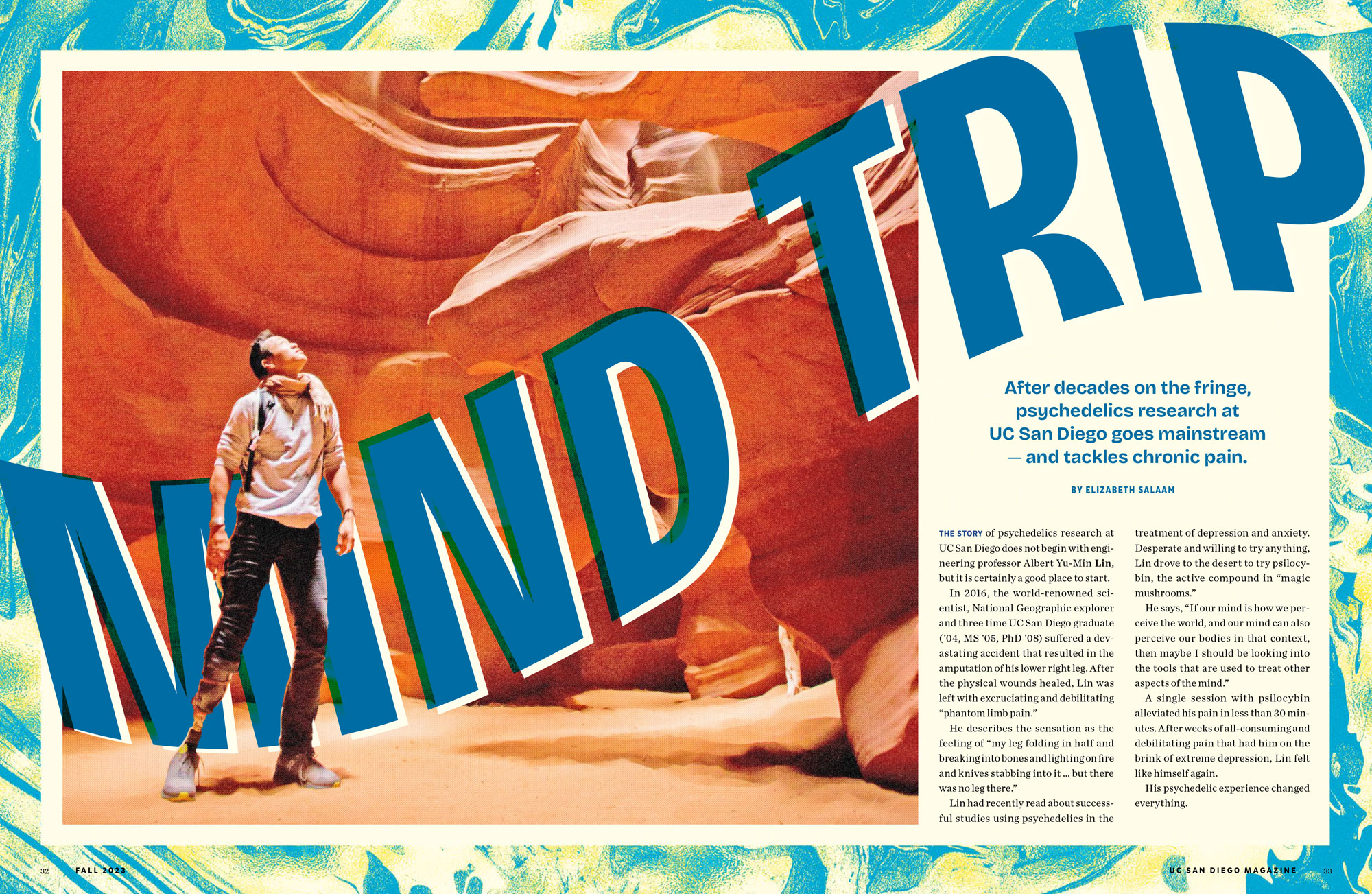Albert Lin has never been one to stay within the lines of convention. A National Geographic explorer, technologist, and amputee, Lin’s life has been a testament to the power of resilience and innovation. But beyond his adventures in distant lands and his pioneering use of technology, Lin’s personal journey has sparked a groundbreaking study at the University of California, San Diego (UCSD). His quest to alleviate phantom limb pain post-amputation led the institution to investigate the potential of psilocybin – a compound found in magic mushrooms – in treating this elusive condition.
For those unfamiliar with the sensation, phantom limb pain is a distressing and often debilitating phenomenon. Amputees frequently describe feeling pain, itching, or other sensations from a limb that is no longer present. Lin’s personal account of grappling with this enigmatic pain post-amputation offered a poignant insight into the daily struggles that many amputees face. His openness about seeking various treatments, combined with his background in scientific exploration, provided a unique confluence of factors that inspired the UCSD research team.
Lin’s story served as a rallying cry for researchers, illustrating the urgency of finding effective treatments for phantom limb pain. His proactive approach to his recovery, combined with his vast network in the scientific community, brought together neurologists, psychologists, and pharmacologists. They began considering alternative treatments that could address the root causes of phantom pain in the brain.
Enter psilocybin. This naturally occurring compound has been used by indigenous cultures for centuries for its therapeutic and spiritual properties. Recent studies have shown its potential in treating conditions like depression, PTSD, and anxiety. But could it also help amputees like Lin?
Albert Lin’s role extended beyond just being an inspiration. He actively engaged with the UCSD team, offering his insights as both a scientist and a patient. His ability to bridge these two worlds was quintessential. He provided invaluable feedback during the initial stages of the trial, guiding researchers in crafting an approach that was both scientifically rigorous and deeply empathetic to the patient experience.
Furthermore, Lin’s public persona played a significant role in generating interest and support for the study. As a respected figure in the world of exploration and science, his endorsement brought attention, funding, and credibility to the project. Participants in the study often cited Lin’s involvement as a factor in their decision to join, trusting in his commitment to finding a genuine solution.
Today, as UCSD delves deeper into the potential of psilocybin to treat phantom limb pain, Albert Lin’s influence is palpable. He stands as a testament to the idea that personal challenges, when met with curiosity and determination, can spark revolutions in understanding and treatment. In Lin’s case, his journey from amputee to advocate might just pave the way for groundbreaking relief for countless individuals.

